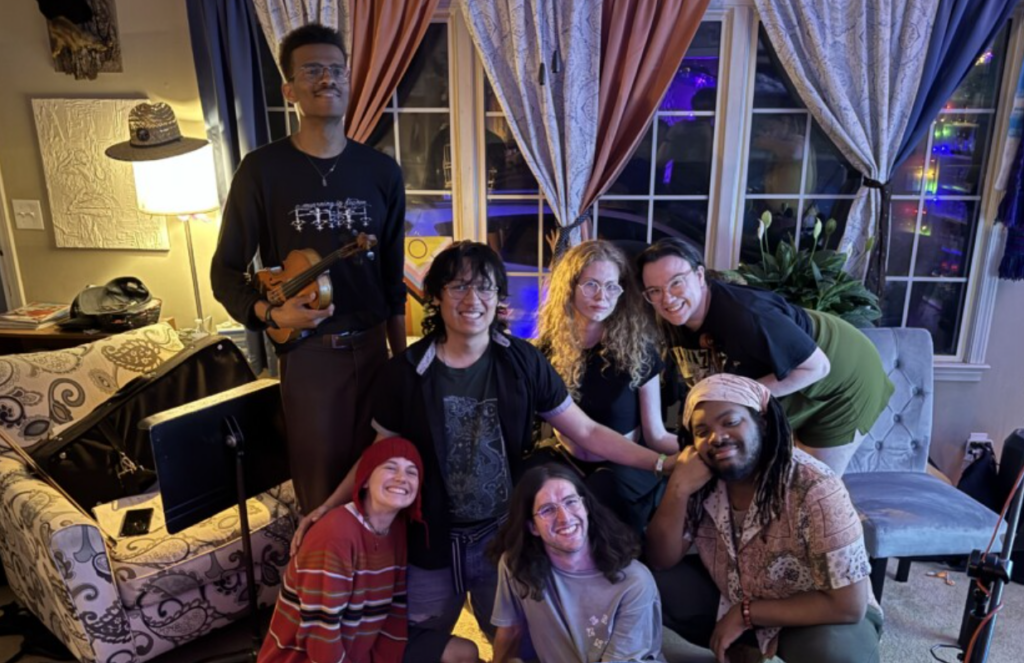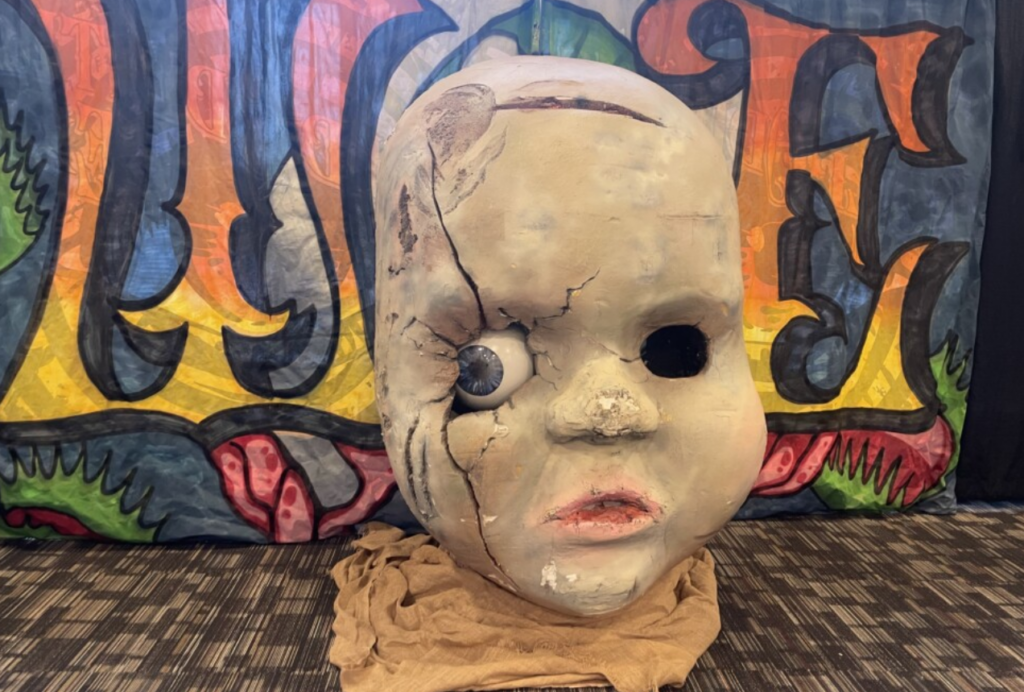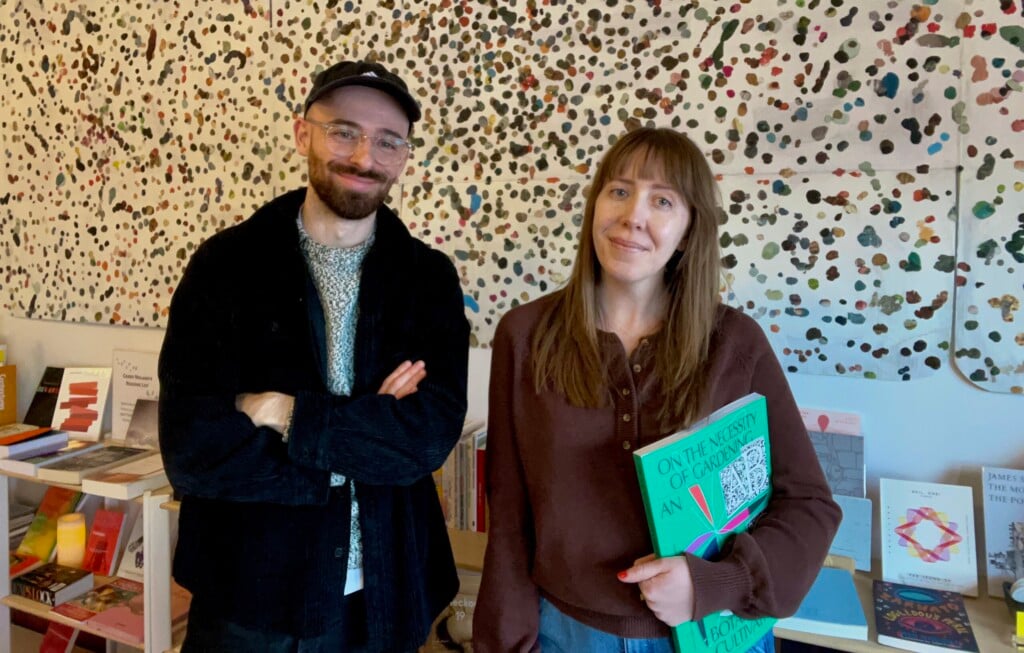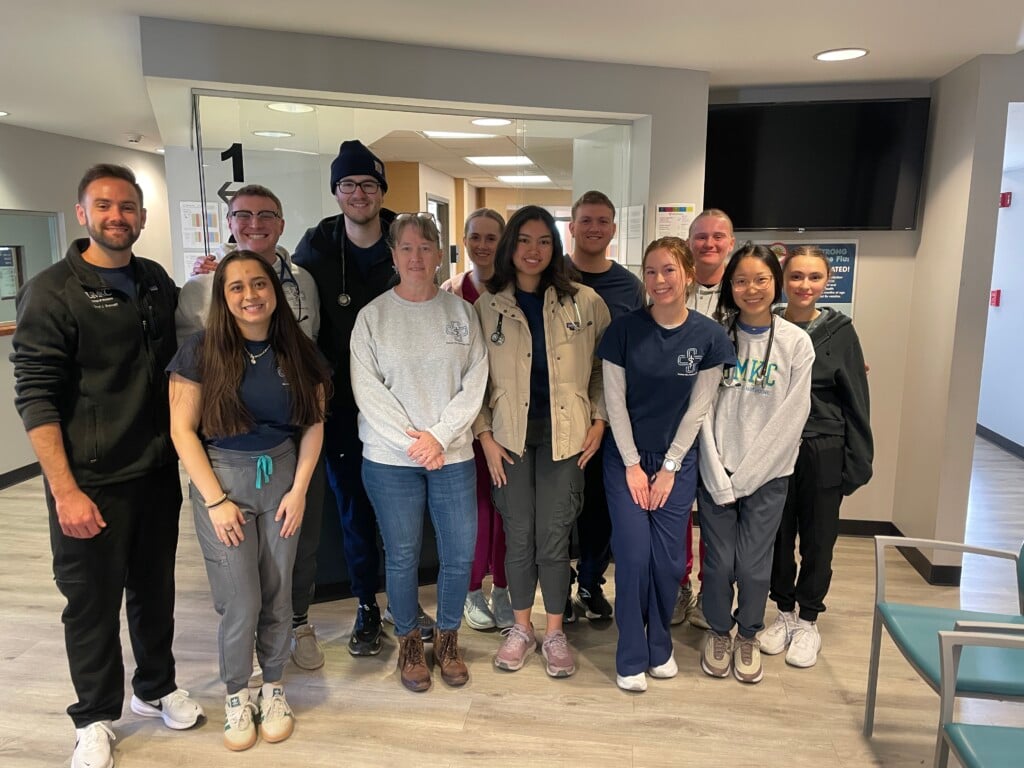KC Cares: KC for Refugees
How training for the everyday takes time

Volunteers Jane Pryor, Terri Hage and Emily Wright sort through donated clothes while stocking the KC for Refugees pantry in Belton. // Photo by Beth Lipoff
Kansas City can feel worlds away from Afghanistan, Ukraine, and many other places where refugees originate. Adjusting to life here isn’t simple or easy, and that’s where KC for Refugees steps in to help.
Started by Sofia Khan in 2016, the organization offers a hand to refugees starting their new life here, both with supplies and guidance. St. Mary Magdalene Episcopal Church in Belton houses their pantry, where families can get hygiene supplies, clothing, and household necessities.
“Our main focus is helping them to not totally assimilate, because we don’t want them to lose their culture, but to try to make do the best they can in a foreign nation,” KC for Refugees Treasurer and Board Member Linda Zemke says. “The main thing is to get them a mentor. And that way, the mentor can help them through the ups and downs of everyday living.”
That might include learning how to catch the bus or get a job. The mentor can also help with other things, such as providing a ride to the doctor’s office or even just being there for a friendly conversation.
Not everyone speaks English, but Zemke says most families have at least one person who does. Mentors often use online translation tools to muddle through conversations until people pick up more English.
Terri Hage has been a volunteer mentor for about two and a half years. She and her husband also help out regularly in the KC for Refugees pantry.

KC for Refugees volunteer Jane Pryor sorts through donated clothing while stocking the group’s pantry in Belton. // Photo by Beth Lipoff
She connected with a young woman who spoke, what Hage calls, “an intermediate level of English” and wanted to improve her skills. Now, she goes over every week or two, and they just talk, which gives the woman the practice she wanted. However, that’s not where Hage’s help ends.
“They just did not understand our medical system and how insurance works. They didn’t have a clue how to find a doctor or a dentist. These are the kind of things I have helped her with,” Hage says. “They didn’t understand what it would take to buy a house someday, so my husband put together a really nice PowerPoint presentation, they came over to our house, and we walked them through it.”
She also works with another woman whose English isn’t up to par, although she’s taking English classes. Hage tries to meet with her every week.
“Whatever we can’t say to each other in English, we use Google Translate for her to be able to learn how things work in the U.S. It’s a good cultural exchange for me, too, because I’m learning a lot about her culture. It’s very informal,” Hage says.
For Hage, helping out in this way feels natural.

The KC for Refugees pantry in Belton helps provide refugees with clothing, shoes and other household items. // Photo by Beth Lipoff
“My feeling is, if I were in their shoes, and I were in another country where I didn’t know the culture, didn’t know the language, I would hope someone would try to be a friend to me,” Hage says.
Hage enjoys being a “surrogate grandma” to two young children in one of the families, playing games like hide and seek with their four-year-old.
When the large push of refugees from both Afghanistan and Ukraine came in 2022, volunteers from KC for Refugees went up to the hotels where resettlement agencies were housing people temporarily, bearing welcome baskets.
For an Afghan family, that basket would include an electric teapot with tea, a carafe, a Quran, a prayer rug, and some dried fruit. When distributing items like this, the group tries to consider cultural sensitivities and needs. For example, many families are used to cooking with pressure cookers, so they provide those when they can.
“We try to do that just to make them feel more at home,” Zemke says.
KC for Refugees tries to combine efforts with other organizations in town that help refugees, such as Jewish Vocational Services, Catholic Charities, and Della Lamb Community Services.
One thing many families need is diapers. Zemke says an average Afghan family might have at least five children.
Overall, just getting the donations—both monetary and practical items—to keep helping people has been a challenge. They mainly acquire necessities by putting out calls for specific items on their Facebook page.
KC for Refugees can always use more people who want to be volunteer mentors for refugee families. For more information about volunteering, visit kcforrefugees.org.




